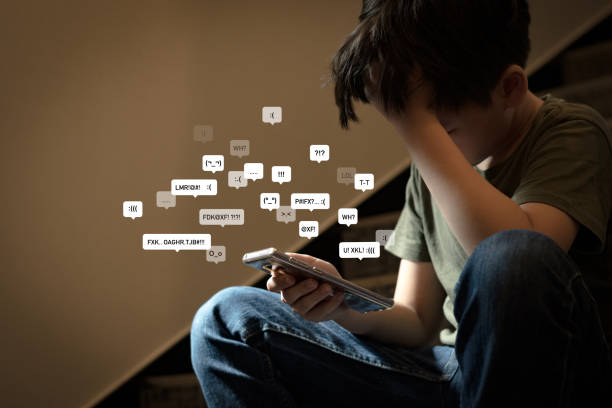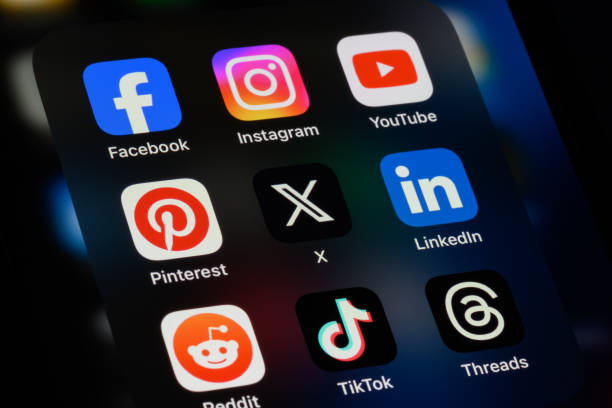The Impacts of Social Media on Mental Health
By Nuvie
7 min Read

In our hyper-connected world, social media has become an undeniable force, shaping how we interact, consume information, and even perceive ourselves. While it offers numerous benefits, the constant barrage of curated feeds, comparisons, and unrealistic portrayals can significantly impact our mental health. This article delves into the complex relationship between social media and mental well-being, exploring both the positive and negative influences it exerts on our emotional and psychological state.

Table of Content
Positive Impact of Social Media
Negative Impact of Social Media
Introduction
Every day, you and I pick up our phones. Every day, we use at least two or more social media apps or websites. Sometimes, you scroll on and on until you realize it's been two hours or something pressing occurs, and you have to act immediately. Even once the issue is over, we bring out our phones and continue. We sound like mindless zombies, right? consuming so much content in minutes without filters and reservations. Who could blame us? After all, when we scroll from one post to another, something happens in our brains. The colorful pictures, catchy songs, and tempting captions all do one thing. They stimulate our brain to release the feel-good hormone "dopamine." If something makes you feel good, would you want to quit it? The answer is no, and that's where social media addiction begins.
Positive Impact of Social Media
Not that social media is completely bad and we should do away with it. After all, we have all benefited from the rise of social media. Social media eliminated the need to wait over a week to communicate; it eliminated distance. It made us forget about a time when communicating with a person meant waiting until we saw them in person or when we had to write a letter to get a message across or make a call. COVID-19 further made social media more prominent through remote working. Workers in different countries can communicate with each other promptly, collaborating without the need to be in the same space. Outside remote working, imagine being alone with no means of communication during the lockdown; it would have taken a mental toll on any individual. Essentially, social media's biggest accomplishment is communication. Not just communication, but seamless, fast, and efficient communication.

Negative Impact of Social Media
Relationship
So what is efficient? Yes, because communication on social media is not perfect. Text messages remove a lot of emotions and context from a message. Leaving it to be interpreted as the receiver sees fit, not how it is intended. This misunderstood message destroys relationships if both parties are not careful. Therefore, it is important to never argue over text, as it is counterproductive. Speaking of relationships, remember the zombie reference in the beginning: It is highly probable that, once you use your devices, you may not even realize how much they distract you from giving attention to the important people in your life. A plant needs water to grow, just as a relationship needs attention to grow. If you neglect to water a plant, it dies likewise, with a relationship. Attention is the life force of a relationship, and social media drains it.
Anxiety
Humans are social animals; we crave attention. We crave validation from people around us, even if we don't publicly announce it. Social media validation starts small. From one post to looking through the comment section to see what each person says, obsessing over the number of likes on each post. Before you know it, you turn into a person who follows trends; you lose your individuality. Anxiety takes its lovely chair in your mind and heart. Anxiety from where? Yes, you hyperventilate, try to calm your heart rate down, or maybe wipe your sweaty palms all before you post that picture. Did I fail to mention how your mind runs in a circle of thoughts flooding in about what people will think? Will they like it? Will it trend? The minute you press post or send or the famous closing of the app after you press post or send. If this is not you, congratulations, but in the end, you do things that are far from your paradigm. This is because you do not want to miss out.

Unproductivity
How addicting is social media? It is very addicting. It is so addicting that if you don't take certain measures, you will find yourself stuck in a loop. Twenty-four hours in a day, and you spend over 12 hours in bed scrolling through different social media platforms, and screen time is a testament to that. At the end of the day, you start feeling not very productive. You fall behind on work; you could have cleared off your desk because you said “One more hour, one more post, one more reel, or one more text." Imagine you feel unproductive every day; your workload keeps piling up, right? Soon, you feel overwhelmed. Before you know it, you unconsciously stick to the one thing that gives you a dopamine rush: social media. Guess who will knock on your door after anxiety has set in? Well, depression is its best friend.
Depression
Speaking of depression, consuming a lot of content unfiltered does something. Unknowingly, you end up comparing yourself to people online. Constantly comparing yourself to others online can be a slippery slope. Before you know it, that internal need for validation chips away at your sense of self-worth, leaving you with a crippling case of low self-esteem. The danger lies because if you're not careful, this toxic habit can lead to one of two outcomes: either you develop an inferiority complex, constantly feeling inadequate, or you engage in regrettable actions driven by the desperate desire to measure up to an impossible standard. Another hit on your mental health is cyberbullying. This crime has driven many people to commit suicide. People on the internet are rude, and they say things unprovoked, sometimes giving unprecedented opinions. This can take a toll on someone who constantly sees these types of comments every day on their posts; they forget people love them the way they are made. They end up depressed, and the self-isolation that social media provides doesn't help either.

Disturbed Sleep Pattern
Another habit that comes up because of social media usage is a lack of sleep. Sleep is vital for the functioning of the human body. It affects productivity and our moods, which is why the first sign something is wrong mentally is usually shown when an individual has trouble sleeping. So, when you stay up at night scrolling, the first night, it goes fine, and your body compensates. It becomes a continuous process; now, you can't fall asleep at an appropriate time anymore. Naturally, your body keeps compensating; you feel fatigued, easily irritable, and depressed, and things like headaches gain on you. One day, your body stops compensating, and you will end up passing out. It's best if you don't wait until you pass out before you get enough rest.
Conclusion
There's no denying that social media has the power to connect us with a vast network of individuals and opportunities. When used responsibly, it can undoubtedly be a valuable tool in our personal and professional lives. However, it's important to recognize the potential impact social media can have on our mental health, relationships, and work productivity. While completely eliminating social media may not be necessary, finding a balance is crucial. Consider reducing your screen time or designating specific hours in the day when you can engage with social media mindfully. By doing so, you can protect your mental health, nurture your relationships, and enhance your overall work ethic. Remember, the key lies in harnessing the power of social media while maintaining a healthy and fulfilling life offline. If you feel you're going on a downward spiral then don't be afraid to contact help. Would you like to read more health-related topics? check out this article



